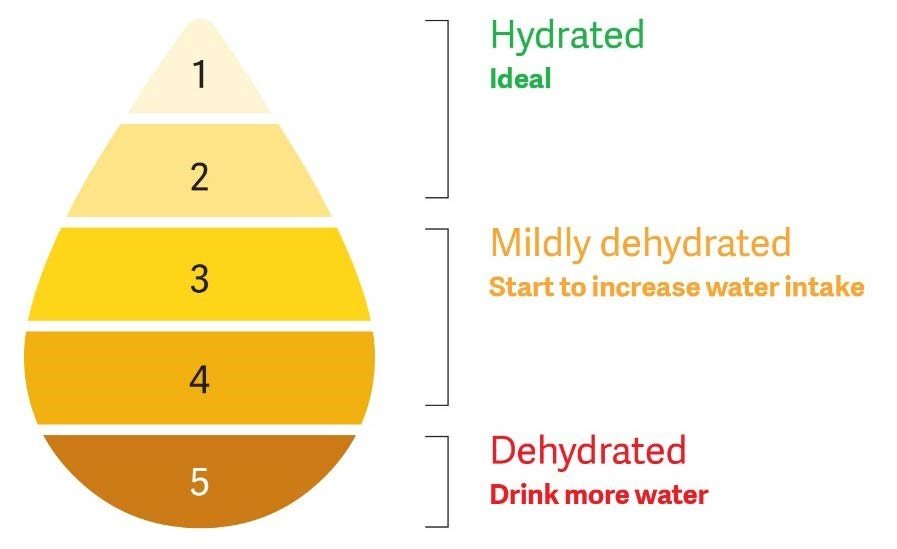 Water accounts for 50-70% of our body weight. Dehydration can occur from exercising, alcohol intake, not replenishing lost fluids, illness, medications such as diuretics or as a complication of diabetes.
Water accounts for 50-70% of our body weight. Dehydration can occur from exercising, alcohol intake, not replenishing lost fluids, illness, medications such as diuretics or as a complication of diabetes.
But what actually happens to our bodies when we become dehydrated? Research shows that we only need to be dehydrated by 1% before it starts to affect our mood, attention, memory and motor coordination. Brain tissue fluid decreases (and hence – brain volume), which may temporarily effect brain function. Blood may become more concentrated, and thicker. This places your cardiovascular system under further stress, and heart rate increases to maintain blood pressure. Change in blood pressure also triggers the kidneys to retain water – therefore you urinate less. Less urination causes toxins to build up in the body and leads to organ dysfunction. When your body is in this state, you are at an increased risk collapsing or fainting.
Dehydration also causes the body to become ineffective at regulating temperature due to its inability to defuse heat. Your cells shrink as water is borrowed to maintain other vital tissues and functions, such as the circulatory system. The brain senses this and triggers the sensation of thirst. Unfortunately, our thirst mechanism lags behind our actual level of hydration – so when you feel thirsty all if these other reactions in the body have already occurred and you are already dehydrated.
Most of us can regulate our hydration through food and water easily. However, this is much more difficult for children the elderly and at times – athletes. It’s best to plan ahead if you know you are spending time outside in the sun or if the weather is predicted to be hotter than normal. So what’s the best way to know if you are dehydrated. Use the chart below and check your flow.
Pip Tockuss
B.Clinexerphys, (AEP, Aes, ESSAM)
Accredited Exercise Physiologist

